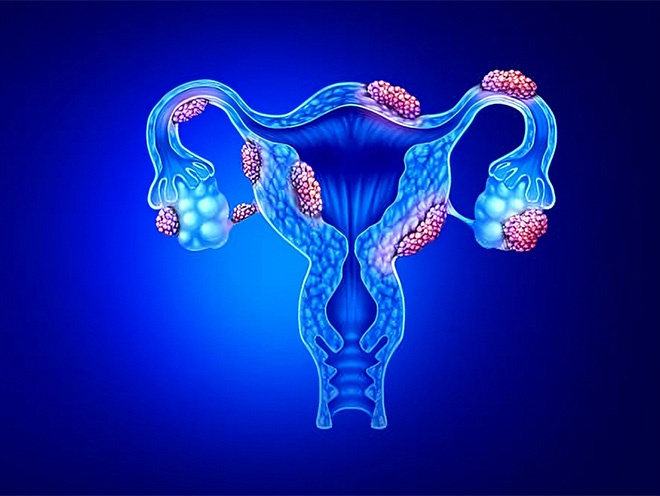 |
What is Endometrial cancer?
Endometrial cancer is a group of epithelial malignant tumors that occur in the endometrium and commonly occur in perimenopausal and postmenopausal women. Endometrial cancer is one of the most common female reproductive system tumors, with nearly 200,000 new cases each year, and is the third most common gynecological malignancy (after ovarian cancer and cervical cancer) causing death.
So can early and late-staged endometrial cancer be treated? The minimally invasive technique with less side effects and less trauma can help patients with endometrial cancer avoid surgical resection, avoid the pain of traditional radiotherapy and chemotherapy, effectively prolong the survival period and improve the quality of life.
For more knowledge about cancer, please consult our doctors online.




The symptoms of endometrial cancer:
There are no obvious symptoms in early stage, and it can only be detected during extensive survey or gynecologic examination for other reasons. Once symptoms appear, then they may manifest as follows:
Vaginal bleeding: this is the earliest and most common symptom for endometrial cancer, and it often manifests irregular bleeding, or heavy or light, and females before menopause often have heavy menstrual blood volume and it will last for a long time; after menopause, it often manifests as vaginal bleeding;
Vaginal apocenosis: the falling off of endometrial cancer tissue necrosis can cause effusion to be drained through vagina; and the effusion manifests like rice-water mixed with blood or purulence companied with evil smelling;
Pain: advanced stage patients often bear great pain which is caused by tumor pressing nerves and can be occurred at the position of lumbosacral area, hypogastrium or even extend to the leg;
Advanced stage patients can touch the enlarged womb under the hypogastrium, and it can cause swelling and pain to lower extremity or other systemic exhaustion like anaemia, emaciation, fervescence, dyscrasia, etc.
Auxiliary examinations can be carried out as per the above-mentioned symptoms to diagnose endometrial cancer, therefore, females shall pay attention to any changes occurred to menstruation and the characters of vaginal secretions. Once certain symptoms appear, go to hospital for examination timely.
For more knowledge about cancer, please consult our doctors online.
Diagnosis methods for endometrial cancer:
Segmented diagnostic curettage. Usually first curettage of cervical canals, then followed by uterine cavity examination, next followed by scoraping endomembrane inside the uterine cavity; after identifying the bottles of samples, send them for pathological examination. The result of pathological examination shall be regarded as the foundation of diagnosing endometrial cancer;
Hysteroscopy. It can directly observe the growth status of endometrial foci and sample suspect foci for biopsy or pathological examination;
Uterine cavity pipette. Apply specially-made uterine cavity sipper or brush to place inside the uterine cavity and take suction of secretions for cytological examination, or for screening;
B ultrasound. It can indicate the degree of muscular layer invasion.
For more knowledge about cancer, please consult our doctors online.
Staging of endometrial cancer:
If it is definitely diagnosed that there is cancer, doctors shall further get to know the condition so that make out the most suitable treatment plan. The principle for judging stages of tumor relies on whether the tumor has invaded to adjacent tissues; whether there is metastasis, if there is, try to determine which parts it has spread to.
The stages of endometrial cancer are:
0 Degree: just adenomatoid hyperplasia occurs, that is cancer in situ;
I Degree: cancer is just limited within the uterine;
II Degree: cancer has invaded to cervix;
III Degree: cancer has spread outside of uterine (including vagina), but not exceeding lesser pelvis;
IV Degree: cancer has exceeded out the lesser pelvis or obviously invaded bladder or rectum mucosa.
For more knowledge about cancer, please consult our doctors online.